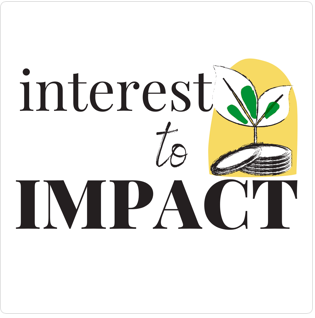Keys to Help You Land the Healthcare Job of Your Dreams
By Charlotte Jones, Chief People Officer, Diversity & Inclusion, Sound
So, as you leave your college years behind, you know you’ve done everything right. You’ve studied hard, participated in vigorous class discussions, aced your tests, turned in assignments on time and made sacrifices to get good grades. You’ve found ways to learn outside of the classroom too. Now, it’s time for all that hard work to pay off with a rewarding career in healthcare.
But wait. There is one last, important step toward pursuing your dream career: the application and interview process. Sound, one of King County’s largest providers of behavioral healthcare services, wants to share these helpful tips that may assist you through the interview and application process.
Pre-Interview
A heap of resumes: No two jobs are alike and providers vary widely in what they are seeking in a candidate. Your resume, the, should reflect these variances and should be adapted to the job and organization. This will help the recruiter more easily identify strengths and qualifications. It is not necessary to rewrite your resume each time; just make slight adjustments based on what the employer is seeking.
Words are key: Many employers, like Sound, have specific job and experience requirements so it is best to review job descriptions to identify key words and match them in your application or resume to stand out from your competition. Like the recommendation above, this will not require a significant amount of time; just a little attention to detail.
The right stuff: Focus your search on providers that offer opportunities for upward growth. Providers with a wide array or programs offer you greater opportunity to explore the right fit. Whether you wish to work with kids, families, older adults, in schools, in the criminal justice system or with people with intellectual disabilities, we recommend seeking providers that offer options for future career growth.
During the Interview
Beyond the job description, Sound, like most employers, seek a set of “skills” not necessarily acquired in an academic environment. This is why it is important to highlight the “soft” skills that help you stand out from the crowd. The time to you take to emphasize these skills in interviews will be time well spent.
Below are just a few of those qualities that employers appreciate:
Highlight Communication/Collaboration: There will always be an opportunity for you to emphasize ways you used communication and team work to get things done. Whether it is in past internships, school projects, volunteer work or more personal matters, Sound appreciates team members who thrive in collaborative situations and demonstrate strong communication skills. Employers as a whole, value communication. Be sure you find ways to introduce this in your interviews.
Demonstrate Flexibility and Adaptability: No work environment, even the most ideal ones, are without the unexpected – especially in outpatient healthcare settings like community behavioral healthcare. In these settings, a job prospect’s currency is their demonstrated ability to adjust to changes or new challenges. Like your ability to communicate effectively and collaborate successfully, become practiced in sharing examples of your ability to adjust and how that led to successful outcomes.
Technical Skills Acquired: There are likely other “hard” skills you’ve learned from past academic, internship or job environments that can readily apply to your next job opportunity. Obvious examples are the latest applications, software or other platforms (know HTML? WordPress, email marketing platforms, design work) that may elevate you in the minds of employers. Take an inventory of all of your technical skills and utilize these in our interviews.
Mistakes Are Gold: Anyone can expound upon their successes at work, internships or school as a sign of their marketable qualities. But we often learn a great deal from the missteps we’ve made (and corrective measures taken), that represent invaluable experience that can benefit an employer. Risk a bit of vulnerability, acknowledge mistakes made, what you’ve learned and how you’ll apply it to your future employer and you can be confident that this honesty will be well regarded.
Post Interview
Hand-written thanks: In the day and age of email, Direct Messaging and other instant communications, nothing stands out like a short, hand-written thank you note. Address each person you interviewed and highlight something you bring to the job in your acknowledgement.
Thoughtful follow up: There is nothing wrong with reaching out to the interviewer to ask a few very thoughtful, job related questions, particularly if they demonstrate ways you think you can contribute to the organization. This affords you the opportunity to stand out, communicate ways you can bring value to the organization and establishes your “brand” in the mind of the employer.
Conclusion
While Sound’s recommendations above are not exhaustive, these recommendations offer you some idea of ways to begin standing out from others competing for the same opportunities. Consider these recommendations as guidelines in developing tactics that help you garner attention and sell yourself to a prospective employer. Sound wishes you the best of luck in your job search!


-370x246.JPG)